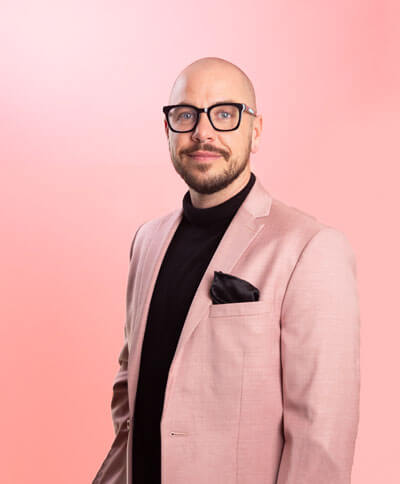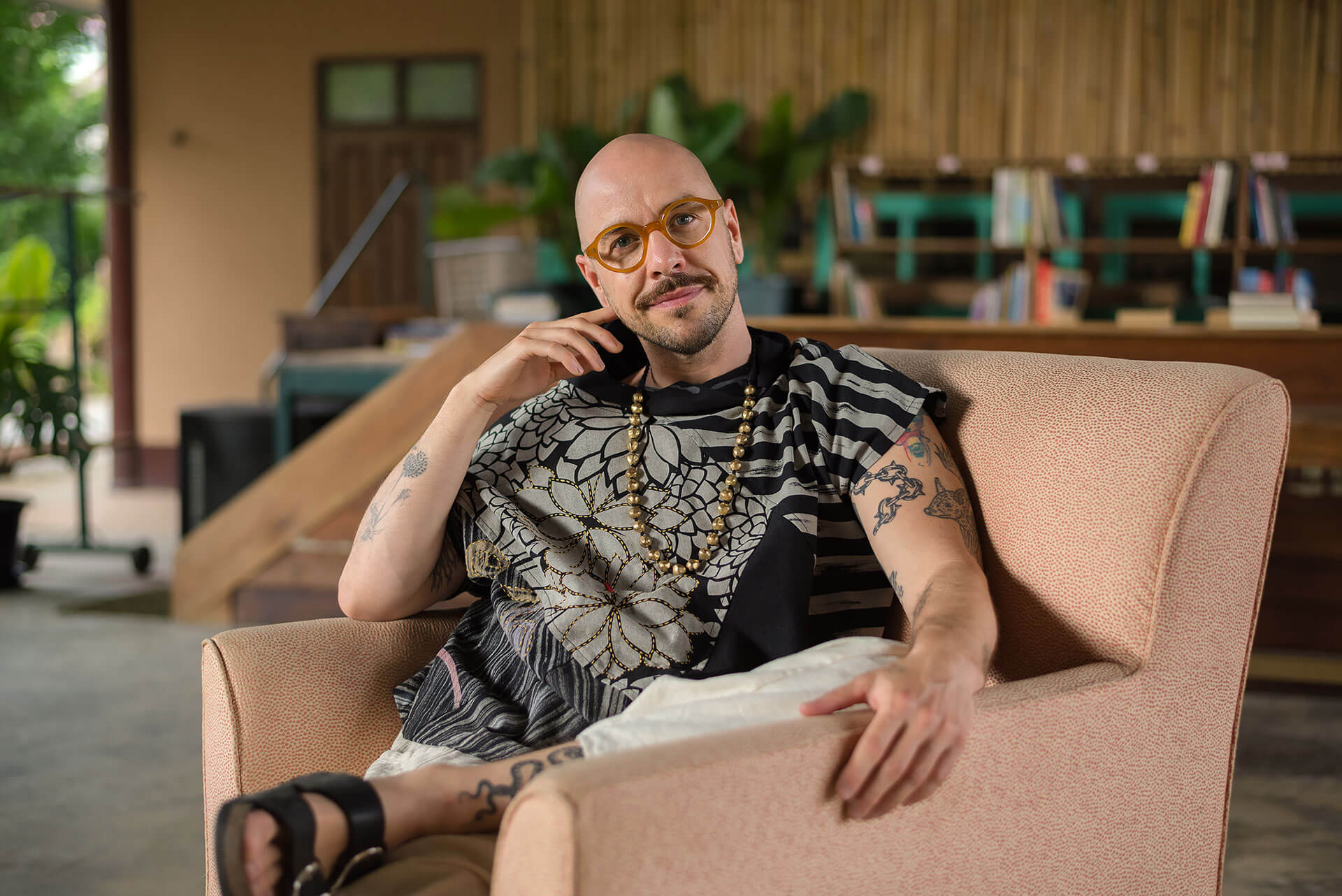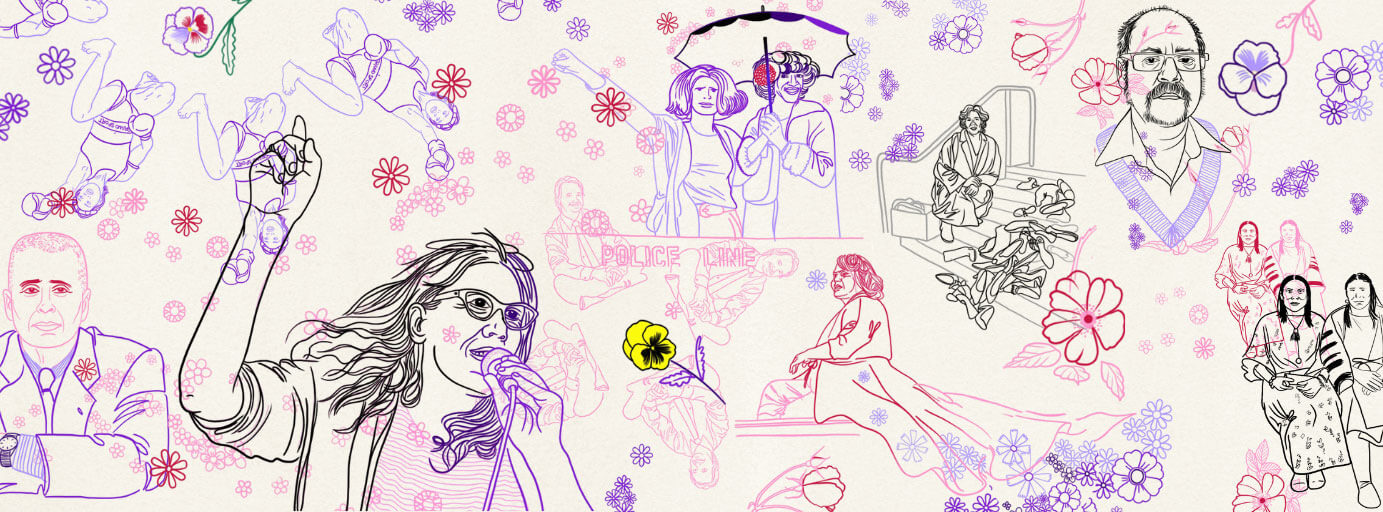Dr. Tobias Wiggins launches the TransLab to create a new space to share research on transgender mental health, foster community connections
 An Athabasca University researcher is creating new spaces to support transgender mental health, uplift voices, and share the experiences of trans, nonbinary, gender diverse, and Two-Spirit people in Alberta.
An Athabasca University researcher is creating new spaces to support transgender mental health, uplift voices, and share the experiences of trans, nonbinary, gender diverse, and Two-Spirit people in Alberta.
Dr. Tobias Wiggins has launched a new online research hub, TransLab, to showcase recent research projects and news in transgender studies.
“Transgender studies works across multiple disciplines and that's a big part of the work of the TransLab—amplifying not only trans scholarship, but also to create more venues for trans students, including AU undergraduate students or graduate students, to pursue their academic goals,” said Wiggins, an associate professor in AU’s Faculty of Humanities and Social Sciences.
TransLab was created with support from the faculty and a Canadian Institutes of Health Research subgrant, which allowed him to hire research assistants to build and maintain the website, which also serves as a hub for connection and even highlights iconic voices in the community.
In a brick-and-mortar university, there are offices, centres, and places where students can show up, where meetings happen. I really wanted TransLab to have that feeling of a place to go, a place to be, a place to learn and be in the community.
Dr. Tobias Wiggins, associate professor, Faculty of Humanities and Social Sciences
Wiggins has spent the past 10 years of his career focused on the mental health of transgender, nonbinary, Two-Spirit, and gender diverse—collectively referred to as “trans” here. That includes mental health through community-based research that often incorporates queer and trans visual culture. With a background in women’s and gender studies, he became interested in transgender studies during his graduate studies after he was invited to contribute to an anthology about trans health.
At the time, he said most research on trans issues focused on the underlying causes of gender variance, often starting with the pathologizing question “why would people be this way?” That work is almost exclusively driven by people who are cisgender.
“I was really taken aback by how few trans scholars there were doing this work. You have very few transgender people contributing to scholarship on transgender lives, and this causes all sorts of problems with the types of outputs that we see.”
Wiggins’s research often involves psychoanalysis to improve our understanding of what motivates behaviour and issues around identity, sex, and sexuality. He also works with the community to both inform the work and to increase awareness about issues affecting the trans community.

Understanding the impact of pandemic isolation
Not long after joining AU during the COVID-19 pandemic, Wiggins identified that trans people were particularly affected by the resulting isolation and job disruption. He led qualitative interviews with individuals from across the province, in cities and rural communities, to understand their experiences. The work was intersectional, meaning it featured people from many identities, with diverse perspectives.
“I really wanted to amplify the voices of trans, nonbinary, Two-Spirit and gender diverse people in Alberta, and I wanted to trace the impacts of the pandemic on their everyday lives.”
That work culminated in a 61-page zine, a non-commercial digital and printed magazine that featured thoughts, poetry, and artwork from trans people across Alberta, including those in rural areas. The zine was distributed across Western Canada.
“I wouldn’t understand how it felt to be marginalized if I wasn’t trans,” wrote participant JM (they/them). “My transness helps me realize my privilege and other aspects of my life. It helps me come into relationship with other people in a better way.”
Related: AU researcher studies pandemic’s effects on mental health in trans community

Imagining trans futures in Alberta
Wiggins followed up that work with another community-based project: Trans Futures Digital Stories. He partnered with the University of Guelph’s ReVision: The Centre for Art and Social Justice to tell stories of possible trans futures. Funded by the Social Sciences and Humanities Research Council, 10 people from the trans community in Alberta participated by attending workshops and learning to tell their stories visually through short films.
Wiggins said he likes to use arts-based research in part because it’s a unique way of engaging with important research questions.
“You’re able to access deeper layers of a social issue than you could just in an interview,” he explained. “People can express their experiences creatively. That can open up different conversations and bring others into people’s lived worlds.”
One of the videos from the project, “Dear 11 Year Old Self,” by Bailey.
Creating community connections among AU trans students
In addition to his work with TransLab, Wiggins created Trans Student Connect—a digital space at AU for transgender, nonbinary, Two-Spirit, and gender-diverse students. Sessions run three times a year and, like the TransLab, the program fosters connection, community, and a deeper sense of belonging at AU. Wiggins said students have responded positively to the initiative, which he hopes will eventually be led by learners themselves.
It’s a space of exploration and grounding and community, and the students have really shown me what matters to them and what they want to talk about.
Dr. Tobias Wiggins, associate professor, Faculty of Humanities and Social Sciences
Visiting professorship at McGill University
This fall, Wiggins will have an opportunity to collaborate with colleagues in Montréal, Que., when he begins the Muriel Gold Visiting Professorship at McGill University. Based at the Institute for Gender, Sexuality and Feminist Studies, the professorship will allow him to further his research into transphobic countertransference—a dynamic in which a therapist’s unconscious bias subtly shapes the therapeutic relationship. The position also provides opportunities to connect with undergraduate and graduate students within the institute.
“I may do a small master class on trans psychoanalysis. There are a lot of students in the graduate program who are interested in psychoanalysis, so that's exciting.”
Learn about the TransLab
Learn more about Wiggins’s research at TransLab.